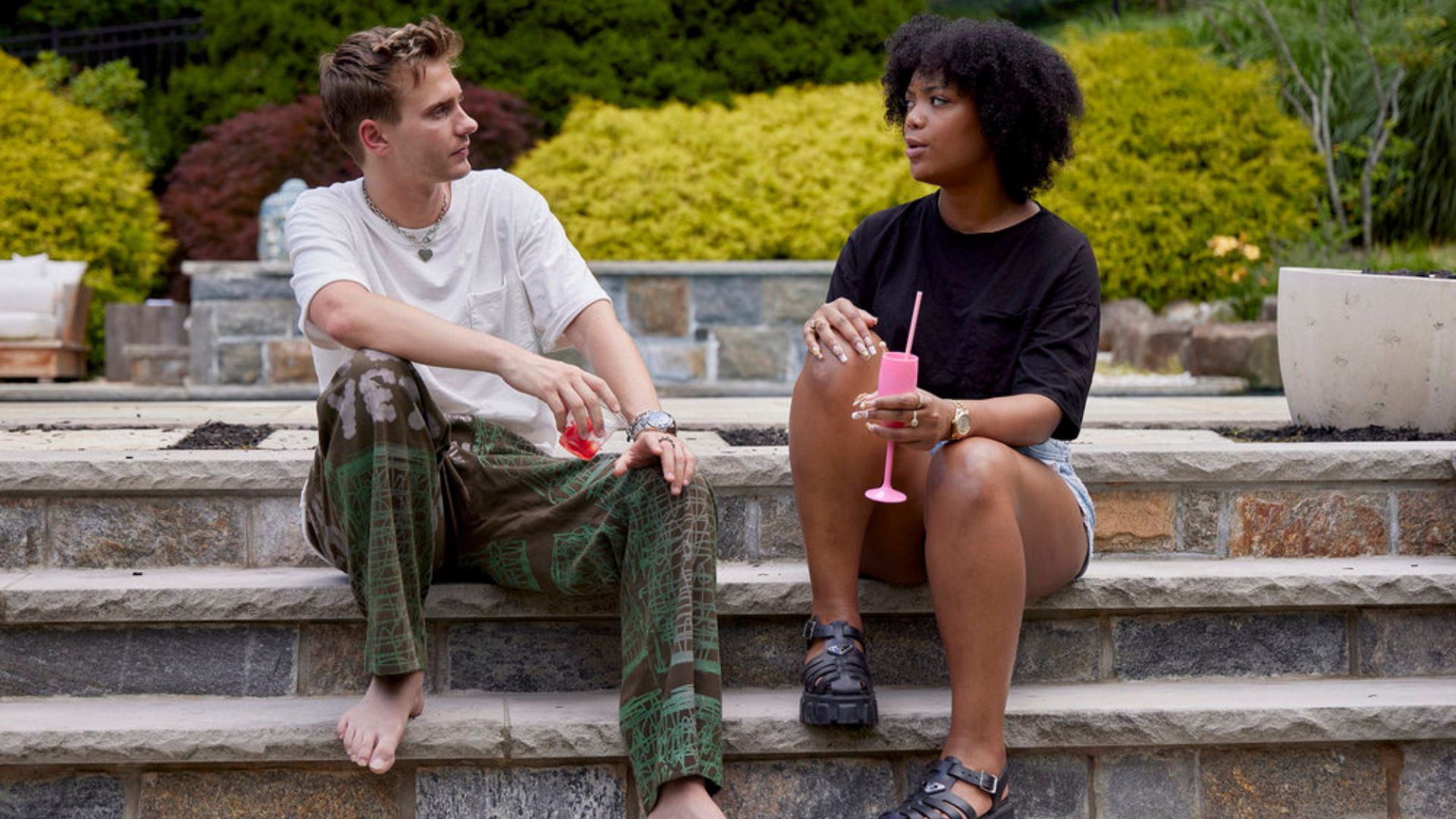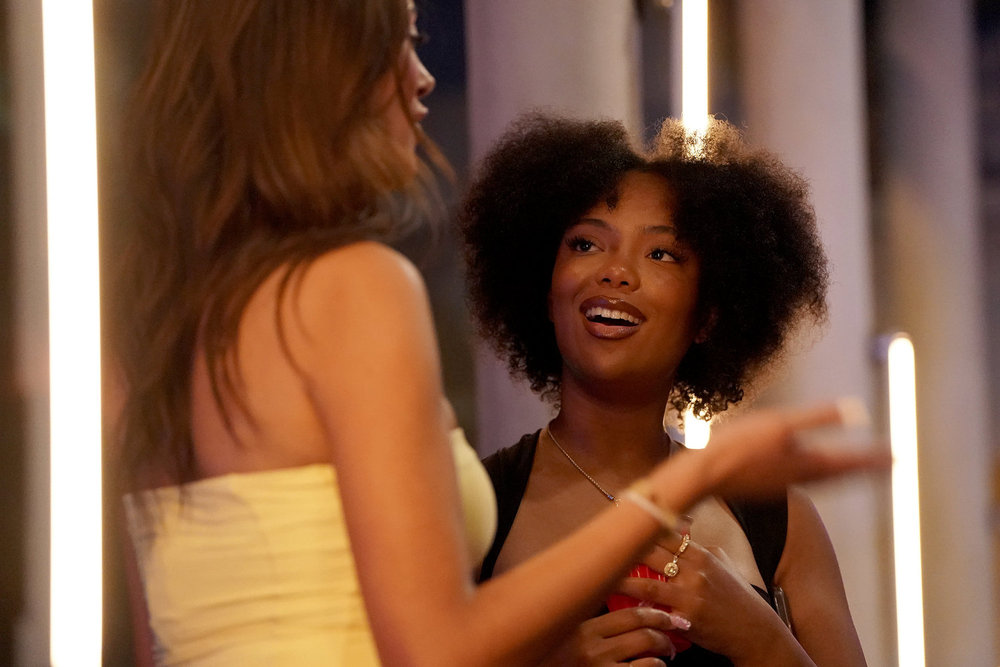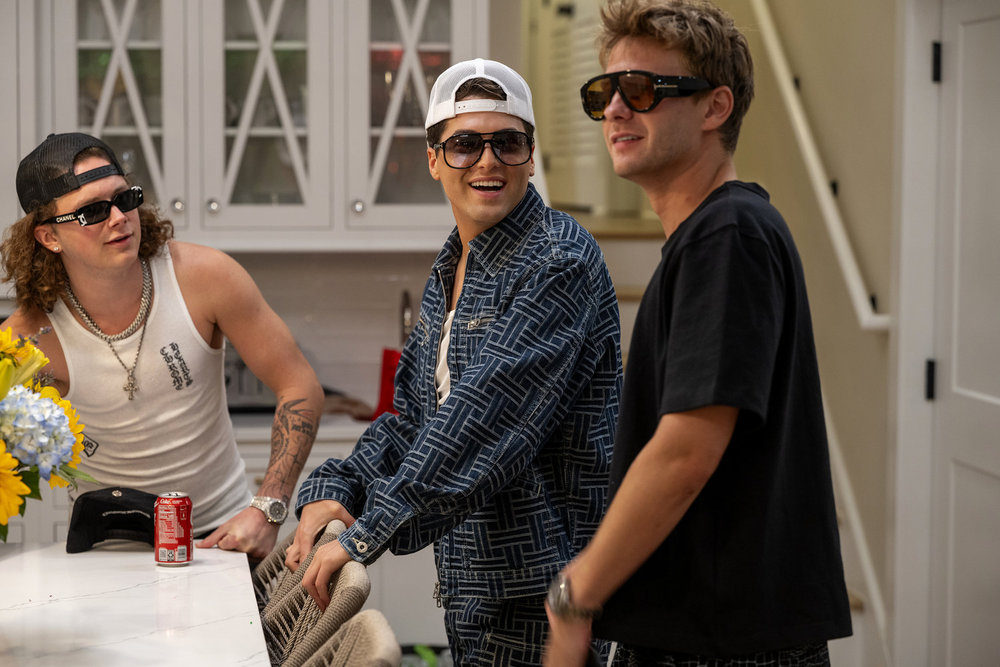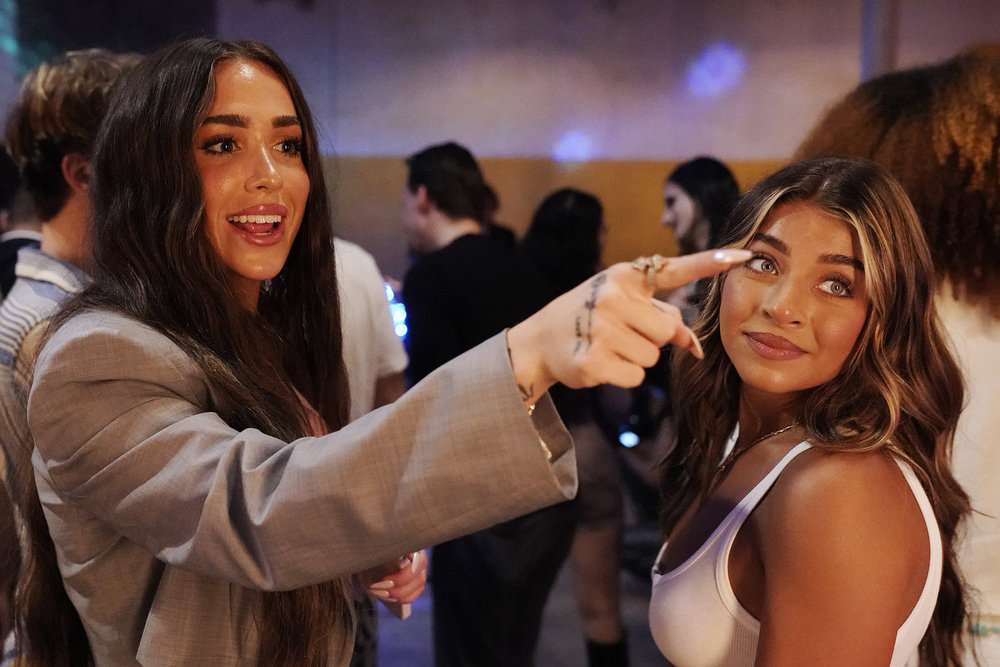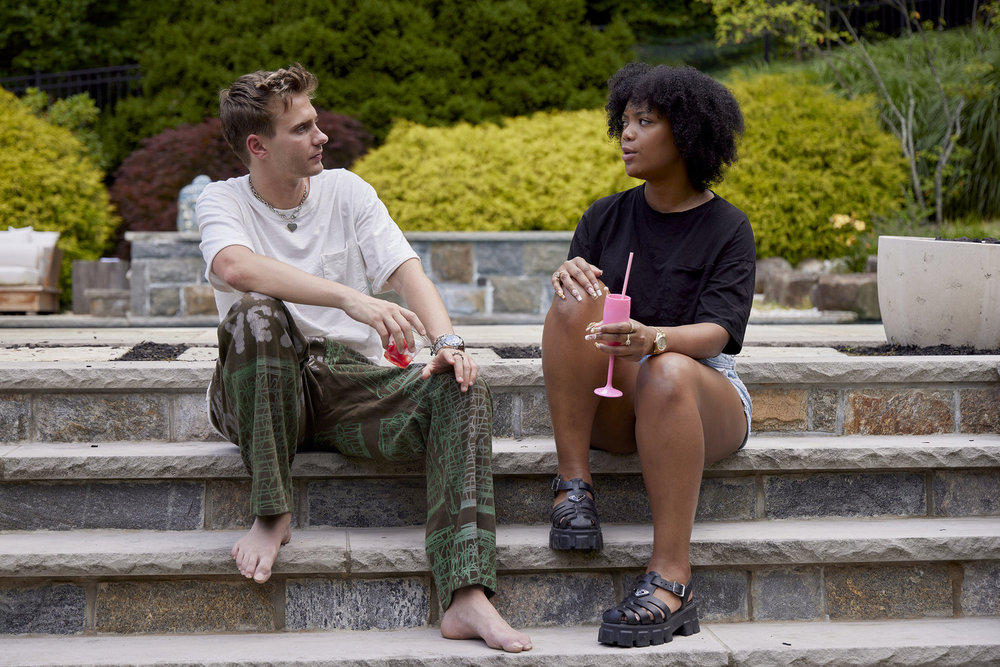I’ve been pleasantly surprised that Bravo’s new Gen Z play, Next Gen NYC, has actually been giving a little something, something. Something I didn’t expect to see, however, during a party bus scene that should’ve been about red solo cup shots among new friends, was an emotional lesson in microaggressions led by Riley Burruss. Charlie Zakkour, the crypto menace dependent on his daddy’s money, had already solidified himself as the show’s villain for the obvious aforementioned reasons at the beginning of this sentence. Charlie also often sounds really bratty when he’s dealing with his friends, from making crass comments about Brooks’ sister to shitting on Ariana Biermann and her supportive man for no reason. But Charlie graduated from being just an eyeroll-worthy doofus when he accused Riley Burruss of “accosting” a “little girl” just by speaking up.
What happened with Riley and Charlie on Next Gen NYC?
On the party bus to Jersey (bad enough, if you ask me), Charlie was getting called out for Irish goodbye-ing at the bar. He responded by telling Riley, “You were, like, mad at the girl,” meaning the one that he left with, and added, “It’s on camera,” when Riley protested. Charlie went on to imitate how he believed Riley acted that night with some pointed language (“Yo, you think it’s cool to be here with Charlie but not come up and make sure it’s cool with me”) and questionable mannerisms (throwing around his hands with pointed fingers and bobbing his head).
When Riley again pushed back, explaining that she merely went up and introduced herself to the outsider, Charlie wanted it to be oh-so clear what Riley’s “attitude was like.” He demonstrated said “attitude” by rolling his neck and snapping his fingers, something the video footage shows never happened. In fact, Riley started the interaction with the stranger by asking her name, saying “nice to meet you” and “sorry” for interjecting, but she “loves when [her] friend’s girl” asks the name of the established girl friends in the group, instead of pretending they’re not there.
When Charlie continues to praise “the girl” (whose name Charlie doesn’t bother remembering despite his intense defense) for handling “Riley accosting her,” well, you can see the frustration visibly build on Riley’s face.
What’s so wrong with saying a Black woman has an attitude?
As Riley explains, she hates when these friends “try to play this like I’m scary, or I’m scaring y’all, random white girls; it’s just so annoying.” She elaborates that it’s frustrating because this is “a real thing” she has to “go through every day” when she’s “so nice fucking to everybody,” yet gets treated like a threat. All Riley did was politely point out Charlie’s new friends were being rude by not greeting everyone at the function, and yet Charlie painted Riley as “doing all this” with attitude. When Riley mimics Charlie’s hurtful, overly sassy imitation back to him, asking, “When have I ever done this?” he says the conversation is getting “extra.”
But Charlie’s defense that “it’s not a racial thing” doesn’t have a bitcoin to stand on because race, unfortunately, is a factor in virtually every interaction we have, especially in America, whether it’s noticeable or not. Trust me, no one wishes more than people of color that we would’ve progressed to a society of total equality, washing away the sins of the forefathers, but we’re definitively not there yet. Because of our history as a nation (and a world, frankly), race pretty much always has relevance, like an app running in the background of our iPhones (which have been accused of being supported by alleged forced labor in underdeveloped international communities, BTW. See what I mean?)
Riley is not being “extra” by pointing out what Charlie doesn’t notice about his words himself. That’s why they call them microaggressions: because they’re subtle, small comments that have a big impact, because of the loaded history behind them, in this case depicting Black women as mad, angry, aggressive, and mean. Spoiler alert: this cruel characterization has impacted Black women in relationships, career, and even by threatening life-saving treatment by biased doctors, even for the most famous in the world, so yes, words matter.
As a Black woman, I nearly teared up watching Riley’s tearful explanation because I saw where this was going from a mile away. I had already, without trying, clocked the group’s previous statements around Riley, the only brown-skinned, tall woman in the group. Georgia called Riley “a little scary” for the handwash-gate. Meanwhile, Gia and Ariana Biermann were equally, if not more, aggressive about expressing their germ ick. Yet they didn’t get the same smoke for speaking up. On the party bus, Georgia admitted Riley said “the handwashing thing so calmly,” but it was “just a tone of voice thing,” perfectly exemplifying the unfair standard Black girls are held to in white spaces. And, TBH, let’s be real: Charlie is the sassiest little queen in the group by far, which is why he’s always the center of the drama.
Why did Charlie place the whole situation on Riley’s shoulders when Georgia expressed feeling the same way? Sure, as Charlie says, he didn’t intentionally consider Riley’s Blackness in his recounting of the scenario, but human beings are not built in a vacuum. No matter how woke we’d like to believe we are, these biases are built into our literal DNA and learned behavior. That’s why it’s so easy for a privileged white boy from Manhattan to associate a Black woman from the South with a neck-rolling, finger-wagging, confrontational antagonist. Riley’s demeanor is evidently soft-spoken, just like her mama’s. Meanwhile, Charlie depicted a literal stranger (old enough to be in a bar), an innocent “little girl.”
Did Charlie Zakkour apologize to Riley for microaggressions?
Despite Charlie saying that he was “genuinely” glad to apologize and hear Riley’s POV, he soon after admitted he only gave Riley a fake apology to “end this fucking shit.” Big yuck! He asked Ava Dash (his much lighter-skinned Black female friend) why pretending to be sorry wasn’t good enough.
But Riley had already explained on the bus why he should care deep down: “You do this all the time, you don’t realize when you do shit, and it’s annoying because it’s bigger than just this stupid conversation.”
“It hit a chord with her that you don’t get,” Ava added in Riley’s defense, trying to break down her opinion that though “it’s not his intention,” Charlie is adding more discomfort to Riley’s already-full plate, thanks to what she faces in the world every day. Moreover, Riley gently tells Charlie by the pool that if he is her friend, he should want to “listen to what [she’s] saying and actually care.”
Seriously, lukewarm take: if you’re not willing to drop your guard to hear the other person out in a relationship, then you don’t value them past convenient companionship. If Charlie only had been open to taking literally anyone’s advice on board, even the damn psychic, this episode could’ve ended so differently. SMH.





















